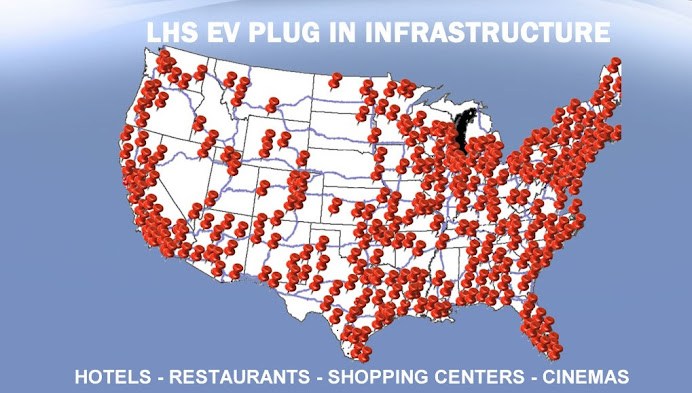
General Motors has announced that their plug-in hybrid technology will be introduced in a new Buick crossover vehicle in 2011. The yet-to-be-named CUV will launch in late 2010 offering a variety of fuel-efficient direct-injected gasoline engines, followed in 2011 by the plug-in hybrid model.
The plug-in hybrid has the potential to achieve double the fuel economy of comparably-sized SUVs on short trips. This significant boost is achieved by combining a modified 2-Mode Hybrid system with advanced lithium-ion battery cells and charging technology developed for GM's Voltec system, which will debut in the Chevrolet Volt extended-range battery electric vehicle in late 2010.
"LG Chem - the supplier of our battery cells for the Volt - has also been selected to supply the lithium-ion cells for the new plug-in hybrid, and Compact Power will supply the pack," said Tom Stephens, GM vice chairman of product development. The plug-in hybrid will use the same manganese-spinel based chemistry and polymer battery cells as the Volt. The 8 kwh battery - containing half the energy of the Volt battery pack - will be packaged in a rectangular-shaped box under the cargo floor. The lithium-ion battery can be fully recharged in four to five hours by simply connecting the vehicle to any standard 110V household electrical outlet.
By recharging rather than refueling, the Buick plug-in hybrid significantly improves fuel economy and reduces petroleum use. In early testing, the plug-in hybrid is capable of electric-only propulsion for more than 10 miles at low speeds. On the road, GM's 2-Mode plug-in hybrid system can use any combination of electric or gasoline engine power to move the vehicle, depending on the driving conditions. This differs from GM's Voltec technology, which provides the Volt with up to 40 miles of emissions- and petroleum-free electric-only propulsion, and an overall range of more than 300 miles with its flex-fuel engine-generator.









